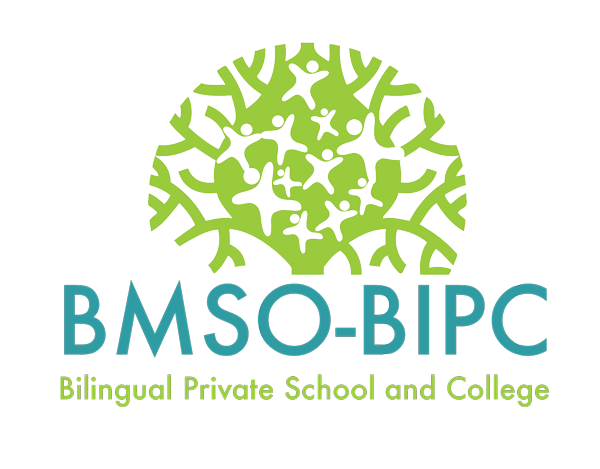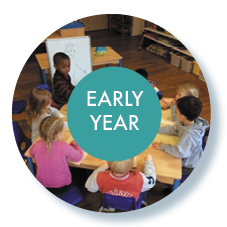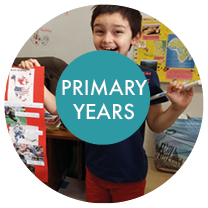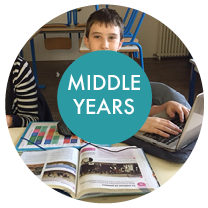Early Years Programs
The aims of our maternelle curriculum and classroom environment is to provide a setting that is conducive to optimal development, learning and growth. We create an atmosphere which supports the continuing development and integration of the following four characteristics, which according to Maria Montessori, form the underlying foundation of the child’s personality:
• the ability to concentrate,
• an interest and pleasure in meaningful work,
• self-discipline, and
• sociability i.e. the desire to be a contributing member of a community.
Our curriculum supports a balance between cognitive and social/emotional development. It aims to nurture and support the child’s developing psyche and takes into account that academic success is closely linked with social and emotional well-being.
Montessori Philosophy
The Montessori method is based on the research and experiences of Italian physician and educator Maria Montessori (1870–1952).
It is an attitude towards learning rather than an approach to child education. It is the way one views, observes and understands the child and his unique aptitude for self-education.
The child has an inborn natural need to educate himself. Montessori shows us the way to ‘teach’ the child how to educate himself without depriving him of the joy of discovery. Education – being an aid to life – needs to be in harmony with the child’s natural development.
A primary principle behind the Montessori method is that the child, not the adult educator, is the constructor of man and society. The child craves the opportunity to act freely on his own initiative in a free (but prepared) environment.
The role of the teacher (sometimes called director, directress, or guide) is therefore, to watch over the environment to remove any obstacles that would interfere with this natural development.
The teacher’s role of observation includes interactions with children, commonly referred to as « lessons », and showing children how to use the various self-teaching materials that are provided in the environment.
Activities
The Montessori method is based on an attitude towards learning rather than an approach to child education. It is the way one views, observes and understands the child and his unique aptitude for self-education.
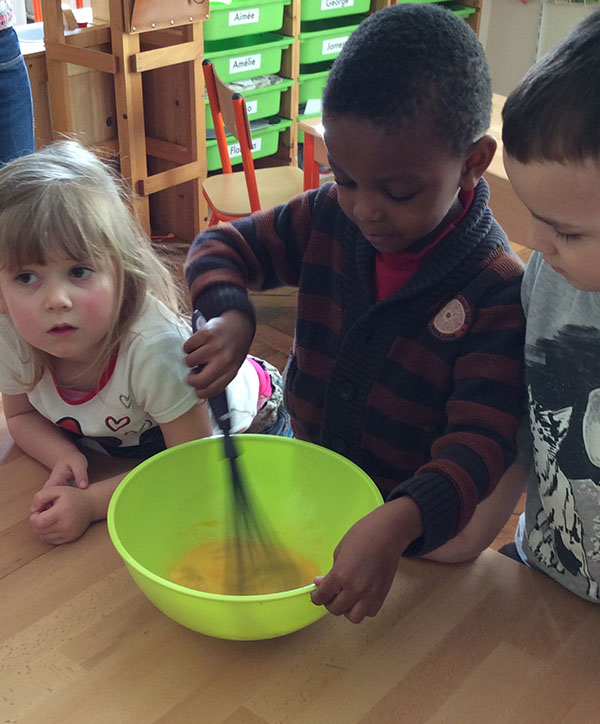
Practical Life
The practical life activities respond to the need of the age 3-6 year old child “Help me to do it by myself!”
Practical Life activities teach children life skills which they can use at home and in their daily lives to care for the environment (dusting/polishing articles/setting the table) and to care for the person (dressing frames allow children to manipulate buttons, press studs, buckles, laces and ribbons). These activities promote autonomy, eye/hand co-ordination and fine/gross motor skills. The repetition of these activities help to develop the child’s concentration, dexterity and self confidence.
Daily exercises in “grace and courtesy” enable the child to be welcomed into a social group, to be happy and to make others happy.
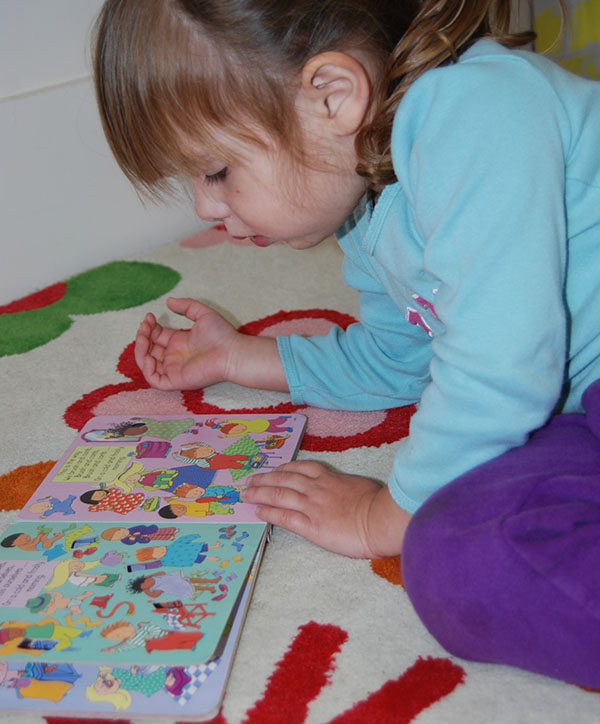
Language and Literacy
Oral language is developed and vocabulary is enriched by encouraging children to talk about their experiences at circle time, discuss their activities recorded in their School Journal, listening to stories, reciting poems and singing songs.
Children start pre-reading activities by learning the initial letter sounds and sound/symbol recognition through various activities.The children trace the shapes of letters using the Montessori sandpaper to learn the phonetic sound of the letter and in preparation for their writing of these symbols. The child also progresses to constructing and reading small words phonetically using the “moveable alphabets”
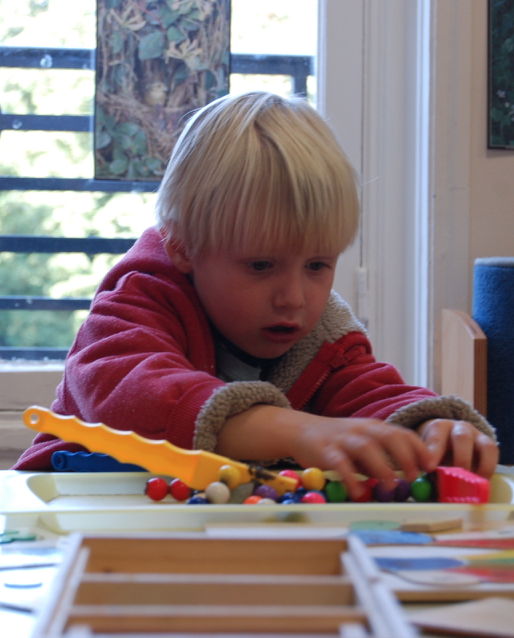
Mathematical
The child gets sensorial impressions of mathematical concepts. Learning begins with concrete experiences but moves the child towards the abstract. There is also a progression of difficulty. The exercises in arithmetic are grouped into six groups:
1. Numbers through 10
2. The decimal system: the hierarchy of the decimal system and operations of arithmetic: addition, subtraction, multiplication, division
3. Counting beyond ten, includes the teens, the tens, and linear and skip counting.
4. Memorization of the arithmetic tables.
5. Passage to subtraction.
6. Fractions.
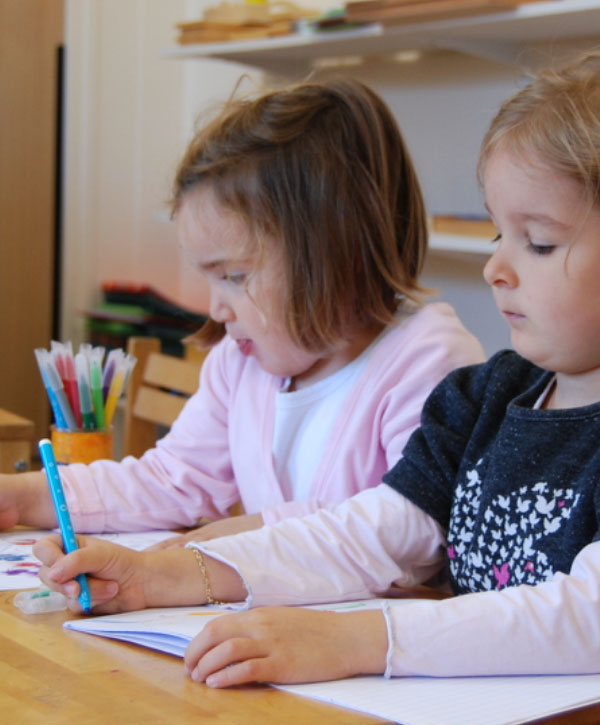
Writing
Indirect preparation for writing is facilitated by practical life exercises and by the use of the metal insets, leading on to writing. Children write with chalk on blackboards, and progress to write with a pencil on paper.
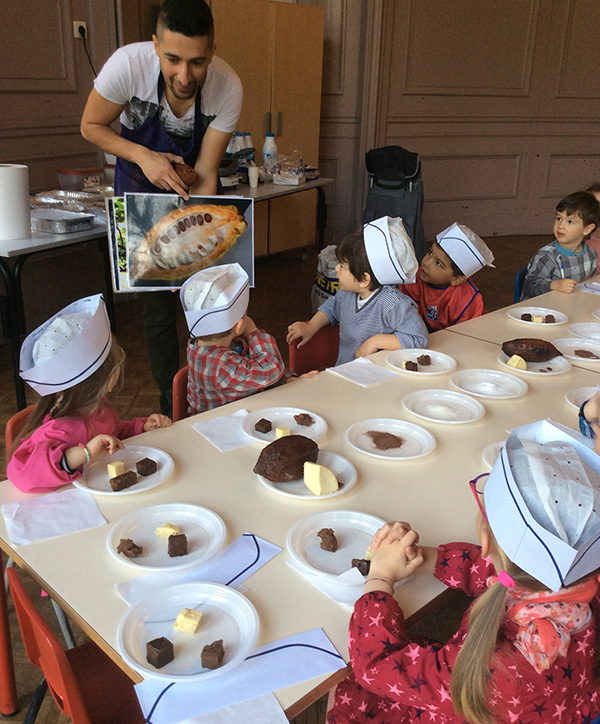
Sensorial
Montessori sensorial materials are designed to stimulate the senses (visual, tactile, baric, thermic, auditory, olfactory, gustatory and stereognostic) and to develop the ability to make fine discrimination.
Sensorial materials allow for individual work and repetition, and enable children to classify their sensorial impressions in an organized, orderly and scientific manner.
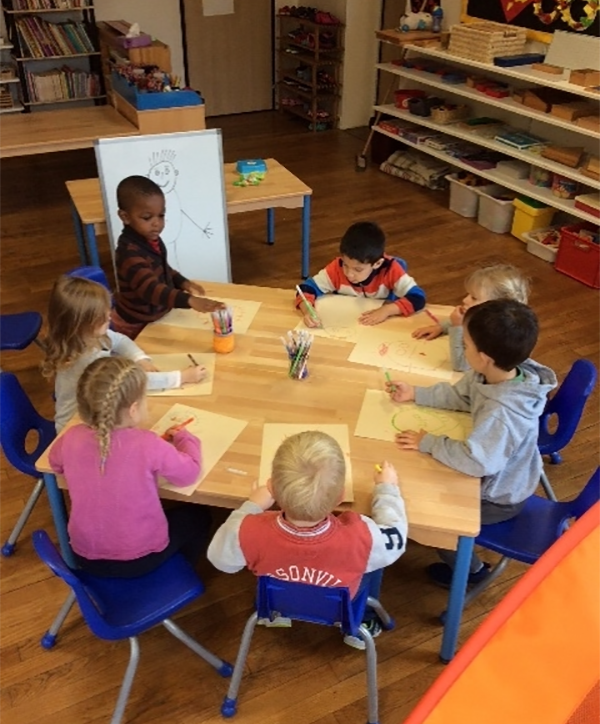
Art and Craft
There is a dedicated free painting area to encourage artistic expression.
Art appreciation is encouraged by displaying prints of works of artists.
Seasonal craft activities are done by the children. These manual activities develop fine motor skills such as holding a paintbrush and cutting skills.
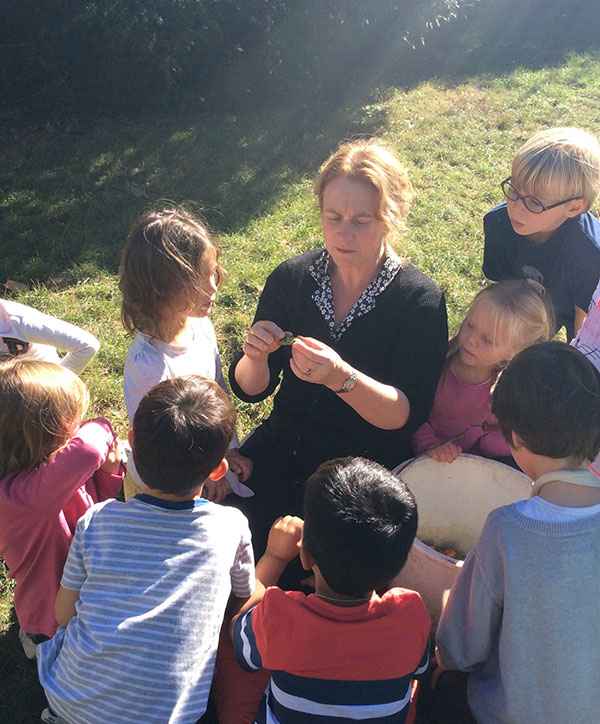
Cultural
Children are encouraged to take an active interest in the world around them at all times: changing of the seasons, passage of children, work on their timeline on their birthday with photographs at birth, and then at each year up to the current birthday.
Other cultures: Australia Day is celebrated on 26 January. Aboriginal art inspires the children’s’ painting and Australian cuisine is prepared and enjoyed as a whole school activity.
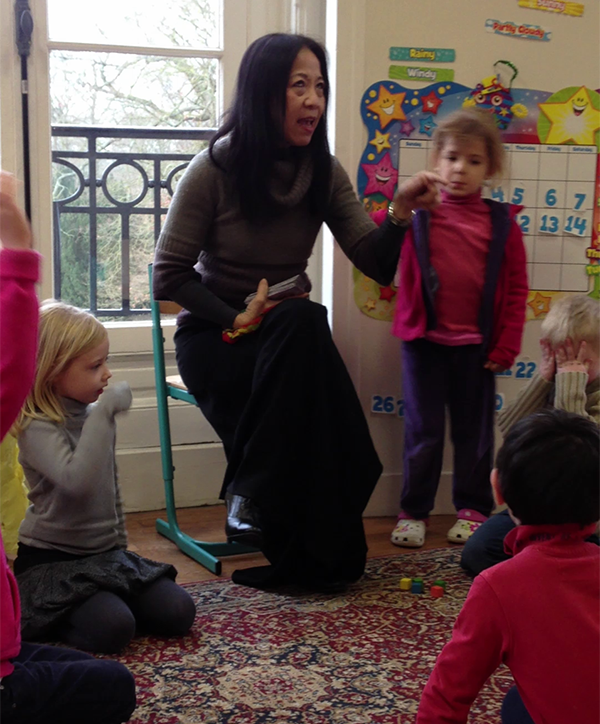
Music and Movement
Singing, action rhymes, dancing and controlling movement through the statue game. A range of musical instruments is available for the children to investigate different sounds and rhythms
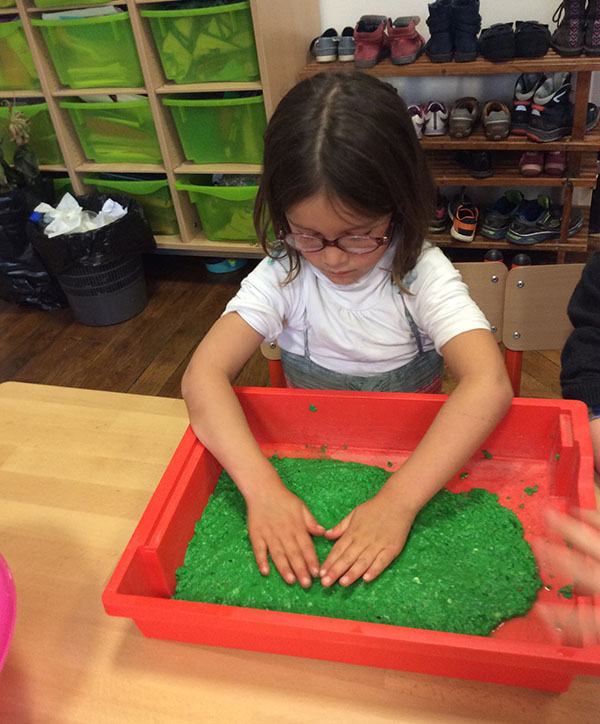
Physical
All children are invited to join in with our physical activities. These include indoor and outdoor group games, playing musical chairs, trampolining, gardening and pony riding in the summer term.
